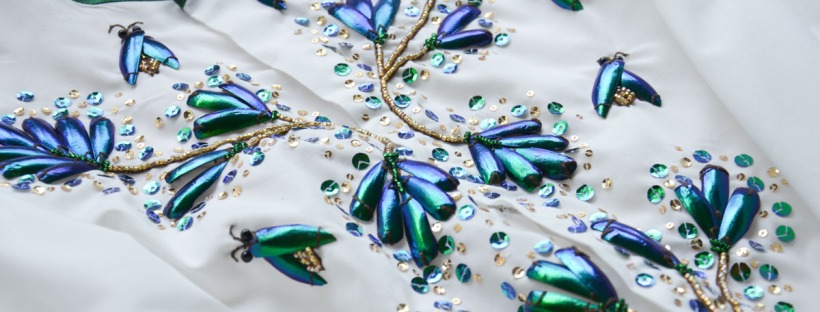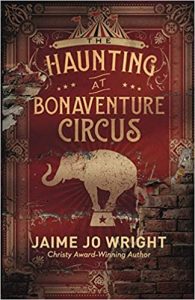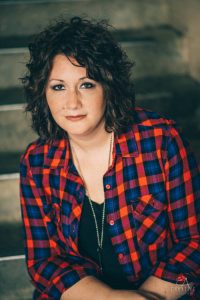As a writer of historical romance and a lover of history, I LOVE research. I’m sure some of you are rolling your eyes about now, but to me, it’s so fun to find the little details that will ground the reader in the time and setting of my story.
Today, I have a new-to-me author, Pat Jeanne Davis, sharing a glimpse into how she researched her new World War II novel, When Valleys Bloom Again. Pat is also giving away one eBook copy of the novel as well! To enter, see the Giveaway details at the bottom of this post.
First, let’s find out a little bit more about When Valleys Bloom Again.
About the Book
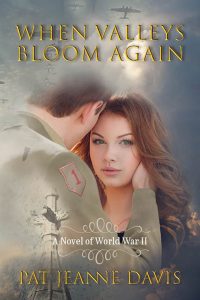 As war approaches in 1939 Abby Stapleton’s safety is under threat. Her father, a British diplomat, insists she go back to America until the danger passes. Abby vows to return to her home in London—but where is home? With her family facing mortal danger so far away and feeling herself isolated, she finds it hard to pray or read the Bible. Did she leave God behind in war-torn London too? Then Abby becomes friendly with Jim, a gardener on her uncle’s estate.
As war approaches in 1939 Abby Stapleton’s safety is under threat. Her father, a British diplomat, insists she go back to America until the danger passes. Abby vows to return to her home in London—but where is home? With her family facing mortal danger so far away and feeling herself isolated, she finds it hard to pray or read the Bible. Did she leave God behind in war-torn London too? Then Abby becomes friendly with Jim, a gardener on her uncle’s estate.
Jim can’t get Abby out of his mind. Did she have a sweetheart in England? Was it foolish to think she’d consider him? He curses his poverty and the disgrace of his father’s desertion and drunkenness haunts him. Can he learn to believe in love for a lifetime and to hope for a happy marriage?
Abby couldn’t know the war would last a long time, nor that she would fall in love with Jim—soon to be drafted by the U.S. Army—or that she’d have to confront Henri, a rejected suitor, determined by his lies to ruin her reputation and destroy her faith in God’s providence. Will she discover the true meaning of home?
A Glimpse into a World War II Author’s Research
by Pat Jeanne Davis
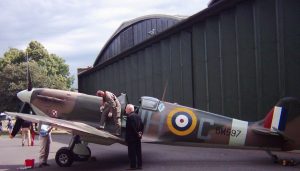
Unknown
I enjoyed doing the research for my WWII inspirational romance, When Valleys Bloom Again. My father-in-law was in the British Eighth Army and fought at Dunkirk, Normandy Beach and throughout Europe. I was further rewarded with an opportunity to ask questions of other veterans living in England and in the States who were willing to share some of their experiences and show me their treasured photographs.
Additionally, I got to travel to distant places with my British-born husband and attended events where re-enactors were dressed in clothes that would’ve been worn during the 1940’s.
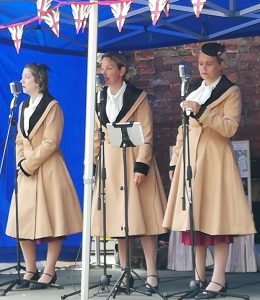
dig
Other times we went to aerodromes and living museums where guides went about their tasks as people would’ve done then. They were always helpful and eager to share what they had learned and to answer questions. When I would uncover an extra special tidbit of information that would enhance my story, I became even more excited.
On one research trip, I went into the largest purpose-built civilian air raid shelter in England that was extended to accommodate 6,500 people during the Second World War. The Stockport Air Raid Shelter is a network of underground tunnels, a mile long, carved out of the sandstone hills on which the city stands that provided not only protection but a way of life for families.
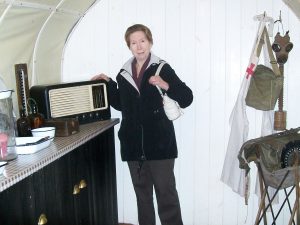 This underground world still intact today as it was during the war years gave me an opportunity to learn about the raw realities of life during the Blitz. I came away with a deep appreciation for those who struggled to survive with only the basic amenities in such depressing and stressful surroundings and further admiration for my husband’s family who lived through those long years of war.
This underground world still intact today as it was during the war years gave me an opportunity to learn about the raw realities of life during the Blitz. I came away with a deep appreciation for those who struggled to survive with only the basic amenities in such depressing and stressful surroundings and further admiration for my husband’s family who lived through those long years of war.
An Excerpt from When Valleys Bloom Again
Jolie Fontaine
Main Line Philadelphia, Summer 1942
Abby sat in the middle of a group of children, reading aloud a favorite story. She looked up to see Carol at her side. “Jim’s on the telephone. I’ll fill in here,” she said, taking the storybook out of Abby’s hands. “He says it’s important.”
She rose from a stool, her heart beating faster. Jim wrote whenever possible and only called occasionally—but never in the middle of the day. It must be urgent.
When out of sight, she sprinted down the hall, dropping breathless into a wooden chair beside the telephone. “Hello, Jim,” she said, pressing the receiver tight to her ear, as if to draw him closer.
“Hello, Darling. I had to call. But I haven’t got long to talk.”
Silence.
“Jim … Jim?” Leaning forward, she rapped the cradle switch. “Are you there?”
“I’m here. Sorry to call like this,” he said, his voice cracking. “They’re shipping me out.”
She slumped back in the seat. “When?”
“I board a train for New York next week. Then a troopship.”
Abby attempted to speak, but a lump rose in her throat.
“Sweetheart, I’m sorry I won’t see you before I leave,” he said in a subdued voice.
She swallowed hard. “Can’t I meet your train s-s-somewhere?”
“I looked into that. There’s nowhere.” The hopeless tone in his voice was unmistakable.
“Then I’ll come to New York.”
“No time for that.”
Her eyes filled. “No time for us?”
“Besides, there’s no more furloughs or passes. Look. It’s not all bad. I’ll probably get to London. Maybe even see your parents when I get a pass.”
Abby sensed he was struggling for words.
“So, that’s at least a cheerful bit of news, isn’t it?”
“S-S-Some,” she said, trying to conceal disappointment in her voice.
“Darling, there’s a line of men waiting to use this phone. I’ll have to go.”
She was losing the battle to stay calm and accepting. “Must you hang up so soon?”
He cleared his throat before speaking again. “I’m not so good at always saying what I feel. Still, you know how much I love you.” His voice carried a wealth of emotion. “I’ll be back.”
“I’ll be waiting for you,” she said, then mumbled a muted, “goodbye.” With a click, their connection was severed.
She replaced the receiver and closed her eyes, her lower lip trembling. She hadn’t reacted the right way to his disappointing news. After all, Jim was being sent off. He was the one at risk, not her.
When she got back to the room Carol and the children were gone. She cleaned the blackboard and tidied up before leaving. Then she strolled to the tower and sat there until the light faded. How much longer would this war go on? Scenes from the latest Pathé newsreel—devoted to the progress of the war—flashed before her eyes. Please, Lord, keep Jim safe.
* * *
Returning to the house, she found her uncle listening to the president’s weekly fireside chat. He pressed a finger to his lips and motioned for her to take a seat. “Nearly done,” he mouthed. On occasion she would join him and her aunt for these broadcasts. Uncle Will proclaimed his liking for Mr. Roosevelt out of patriotism and Aunt Val by way of a fondness for Eleanor.
When the president finished, Uncle Will turned off the radio. “I see that Eisenhower’s in England and has command of U.S. Forces in the European theater.”
Abby went straight to her complaint. “Jim’s being sent to England.”
“Oh, dear,” he said, leaning back and folding his arms. “This afternoon his sister hinted something was up.” He furrowed his brow. “I know how disappointed you must feel. But look on the bright side,” he said, grinning. “Perhaps he’ll get to meet your parents.”
“Yes, that’s what Jim thought.” She forced a smile. “It’s something to hang on to.”
“Let me show you this.” Uncle Will went over to the map on the wall that bristled with tacks of different colors. He pointed to one section, motioning for Abby to join him. “The President says that because of our navy’s victory over the Japanese here at Midway Island, there’s been a decisive turn in this phase of the war. This affects everything else to come.”
“Surely, this war can’t go on much longer,” she said, her voice quivering.
He rubbed the back of his neck. “I wouldn’t go so far as to say that, yet. Your Jim is off to fight to ensure our freedom. Pray God may help him to do what needs to be done for however long it takes.” He placed a hand on her shoulder. “Jim must do what he needs to do, and you must have faith that he will come back to you.”
“You always say what I need to hear, Uncle.”
About Pat
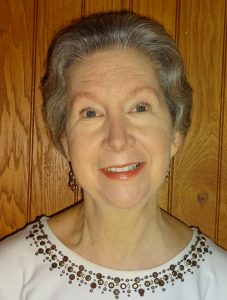 PAT JEANNE DAVIS has a keen interest in 20th Century United States and British history, particularly the period of World War II. Her longtime interest in that era goes back to the real-life stories she heard about family members who served during the war. When Valleys Bloom Again is a debut inspirational romance set in WWII. She enjoys flower gardening, genealogy research and traveling with her British-born husband. She writes from her home n Philadelphia, Pa. Pat has published essays, short stories and articles online and in print. She is a member of American Christian Fiction Writers.
PAT JEANNE DAVIS has a keen interest in 20th Century United States and British history, particularly the period of World War II. Her longtime interest in that era goes back to the real-life stories she heard about family members who served during the war. When Valleys Bloom Again is a debut inspirational romance set in WWII. She enjoys flower gardening, genealogy research and traveling with her British-born husband. She writes from her home n Philadelphia, Pa. Pat has published essays, short stories and articles online and in print. She is a member of American Christian Fiction Writers.
READ this Q&A with Pat in the March 2020 Issue of Family Fiction Magazine
You can connect with Pat on her website, Facebook, Instgram, Goodreads, Amazon Author Page, Linked In, Pinterest, or BookBub
GiveAway**
This Giveaway is Now CLOSED!!
Congratulations to our winner, Rebekah Miller!
Pat has graciously offered an eBook copy of When Valleys Bloom Again to one lucky Romancing History reader. To enter the drawing, tell us about a World War II era historical site, memorial, or event you’ve visited or would like to visit in the comments below.
**Giveaway ends midnight, Wednesday, September 23**
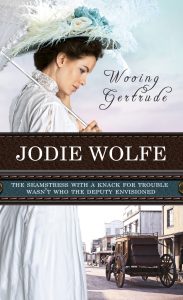 Hello Friends, It’s been awhile since I’ve posted here. What can I say life is busy. Today, however, you’re in for a real treat as I’m excited to welcome Jodie Wolfe back to Romancing History. Jodie and I were in a critique group a few years back and have both been published with Pelican Book Group.
Hello Friends, It’s been awhile since I’ve posted here. What can I say life is busy. Today, however, you’re in for a real treat as I’m excited to welcome Jodie Wolfe back to Romancing History. Jodie and I were in a critique group a few years back and have both been published with Pelican Book Group. Jodie Wolfe creates novels where hope and quirky meet. She is a member of American Christian Fiction Writers (ACFW), and Faith, Hope, & Love Christian Writers (FHLCW). She’s been a semi-finalist and finalist in various writing contests. A former columnist for Home School Enrichment magazine, her articles can be found online at: Crosswalk, Christian Devotions, and Heirloom Audio. When not writing she enjoys spending time with her husband in Pennsylvania, reading, walking, and being a Grammie. Learn more at www.jodiewolfe.com.
Jodie Wolfe creates novels where hope and quirky meet. She is a member of American Christian Fiction Writers (ACFW), and Faith, Hope, & Love Christian Writers (FHLCW). She’s been a semi-finalist and finalist in various writing contests. A former columnist for Home School Enrichment magazine, her articles can be found online at: Crosswalk, Christian Devotions, and Heirloom Audio. When not writing she enjoys spending time with her husband in Pennsylvania, reading, walking, and being a Grammie. Learn more at www.jodiewolfe.com.

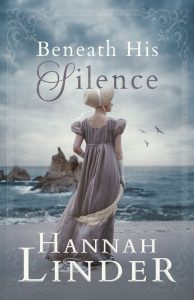


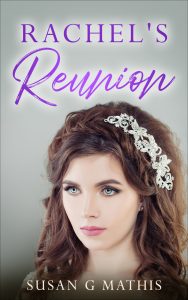
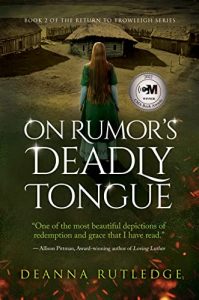
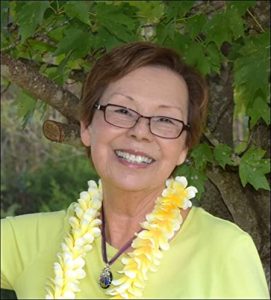

 Kathleen Bailey is a journalist and novelist with 40 years’ experience in the nonfiction, newspaper and inspirational fields. Born in 1951, she was a child in the 50s, a teen in the 60s, a young adult in the 70s and a young mom in the 80s. It’s been a turbulent, colorful time to grow up, and she’s enjoyed every minute of it and written about most of it.
Kathleen Bailey is a journalist and novelist with 40 years’ experience in the nonfiction, newspaper and inspirational fields. Born in 1951, she was a child in the 50s, a teen in the 60s, a young adult in the 70s and a young mom in the 80s. It’s been a turbulent, colorful time to grow up, and she’s enjoyed every minute of it and written about most of it. Sarah Drayton is eager to spend time with her best friend at her crumbling Northumberland castle estate. Matrimony is the last thing on her mind and the last thing she expects to be faced with on a holiday. Yet she finds herself being inveigled into a marriage of convenience with her friend’s rakish brother.
Sarah Drayton is eager to spend time with her best friend at her crumbling Northumberland castle estate. Matrimony is the last thing on her mind and the last thing she expects to be faced with on a holiday. Yet she finds herself being inveigled into a marriage of convenience with her friend’s rakish brother. Carolyn Miller is an inspirational romance author who lives in the beautiful Southern Highlands of New South Wales, Australia, with her husband and four children.
Carolyn Miller is an inspirational romance author who lives in the beautiful Southern Highlands of New South Wales, Australia, with her husband and four children.
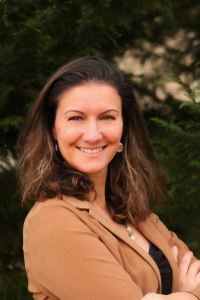
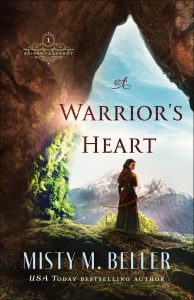

 Title: A Tapestry of Light
Title: A Tapestry of Light